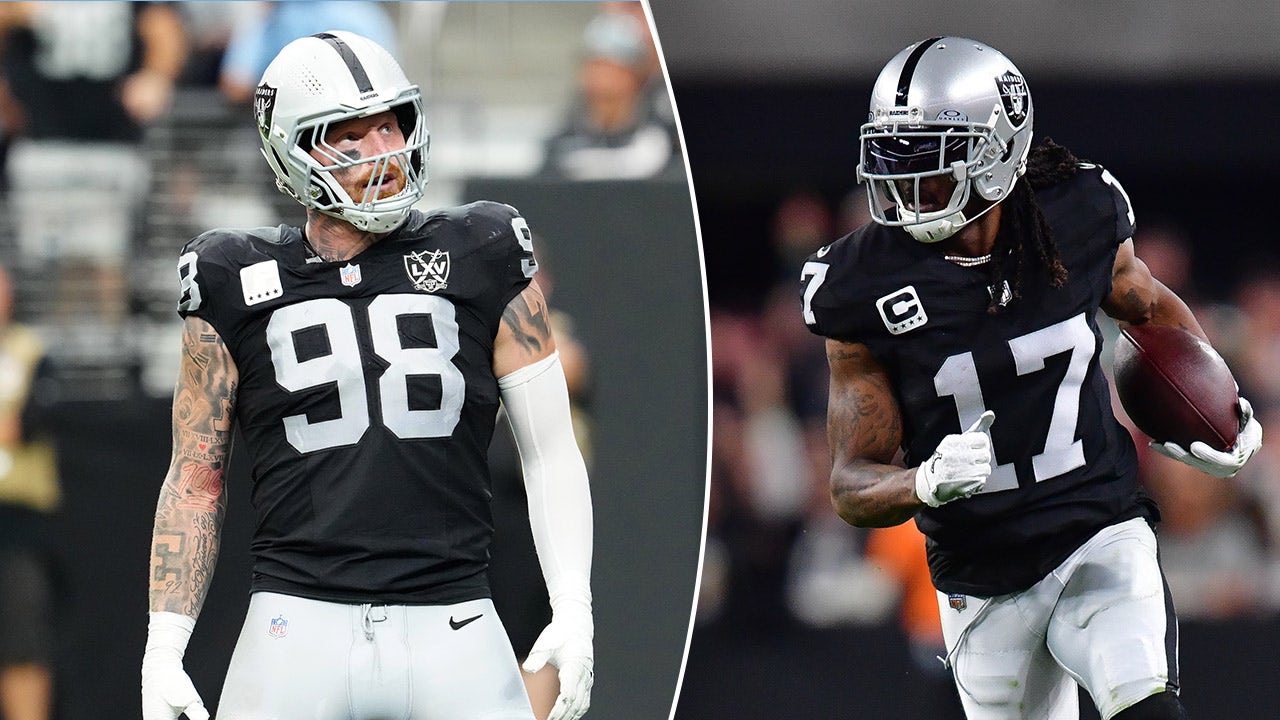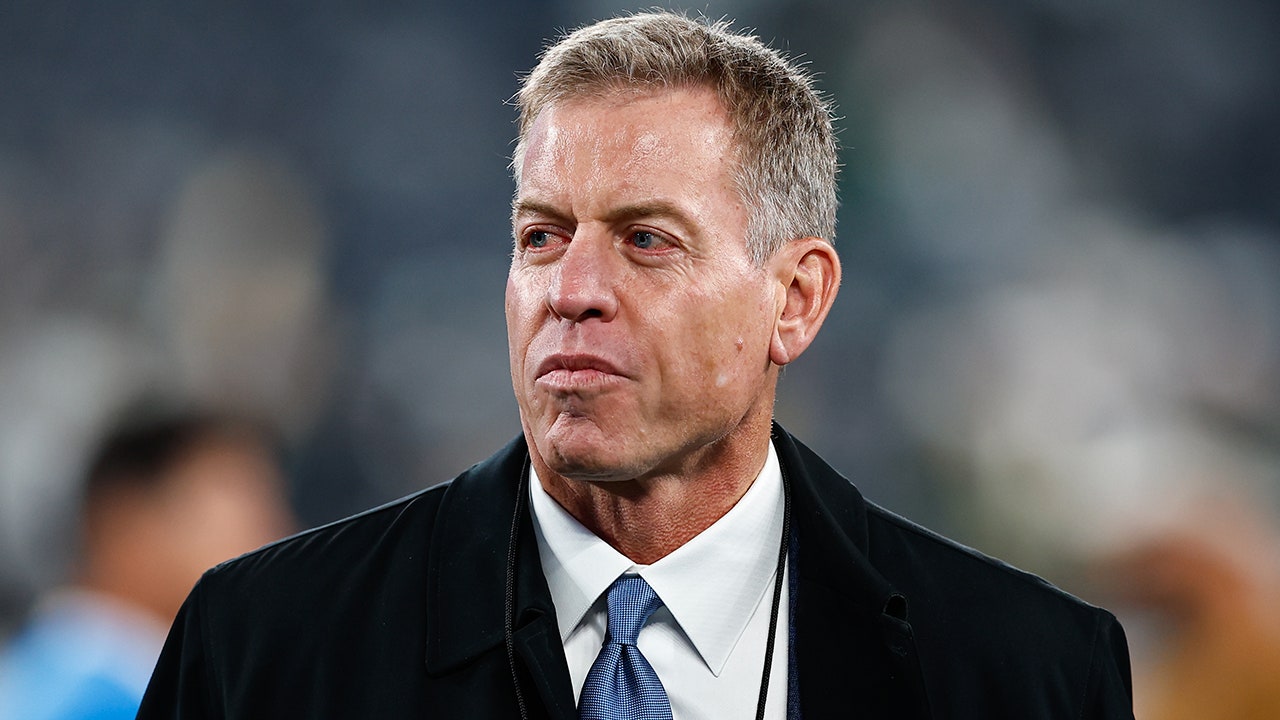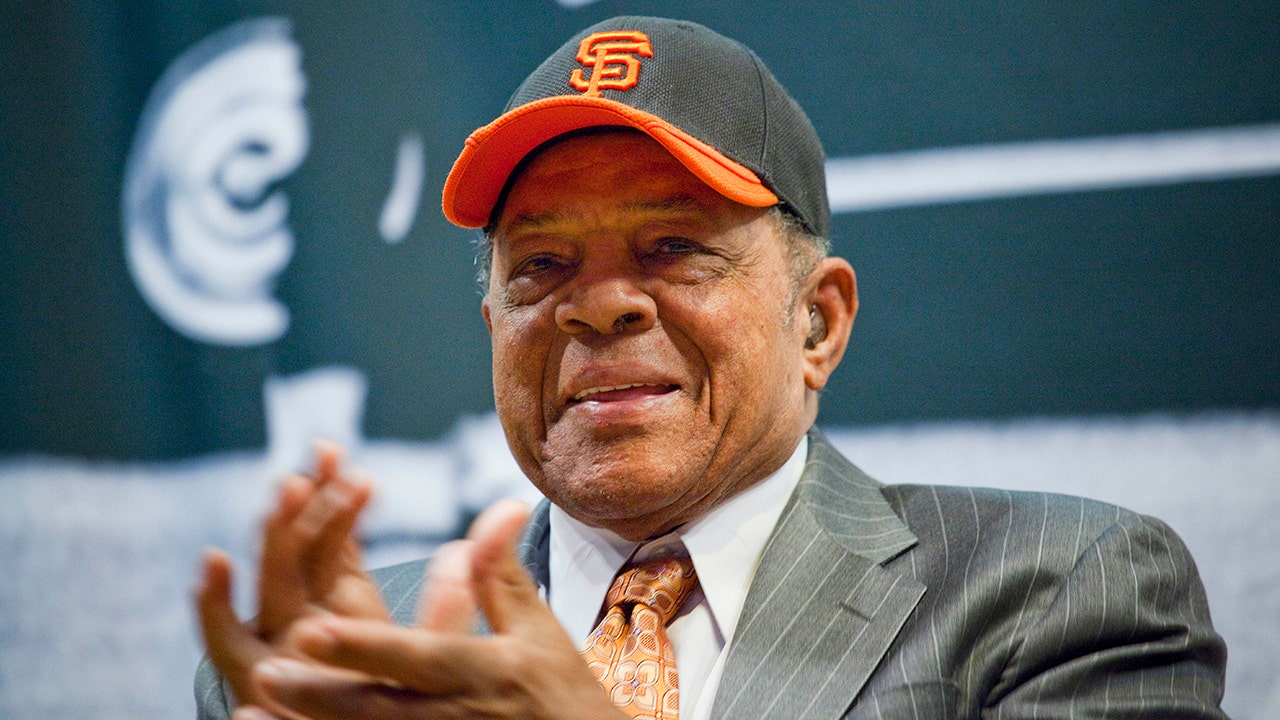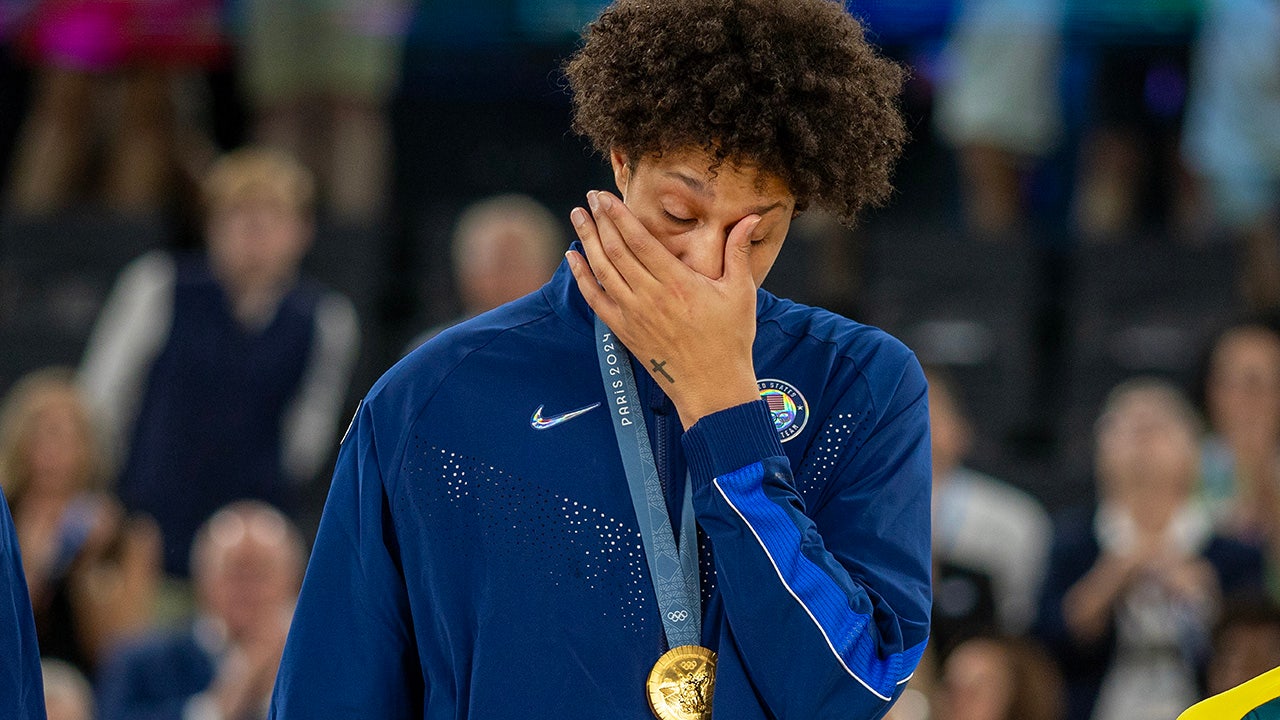“Their average age is 26. They’re in the prime of their footballing lives,” Clive Tyldesley, the ITV commentator, said into his microphone as England prepared to kick off against France at Euro 2004.
David Beckham, Paul Scholes, Steven Gerrard, Frank Lampard, John Terry, Ashley Cole, Michael Owen, Sol Campbell… this was England’s golden generation at their peak.
Yet it was the baby-faced assassin among them, or the assassin-faced baby as some liked to call him, who played as though he was ready to take over the world.
This summer marks 20 years since Wayne Rooney, aged 18, went on the rampage at Euro 2004.
“Like a raging bull,” Emile Heskey, the former England striker, says. “The youthful enthusiasm, plus the fearlessness. He was phenomenal.”
Raw, volatile and prodigiously talented, Rooney scored four goals in three-and-a-bit games (England will forever wonder what might have been but for that metatarsal injury in the early stages of the quarter-final against Portugal), and lit up the group stage.
“I don’t remember anyone making such an impact on a tournament since Pele in the 1958 World Cup,” Sven-Goran Eriksson, England’s manager, said. “He’s a complete footballer.”

(Michael Mayhew/Sportsphoto/Allstar via Getty Images)
Straight outta Croxteth, Rooney’s ability was a product of where he grew up in Liverpool rather than how he had been coached.
“Nobody can take credit for Wayne’s development,” David Moyes, Rooney’s manager when he broke through at Everton, reflected many years later. “He is probably the last of those street players that used to be the rage when you go back to all the greats.”
That was how Rooney played in Portugal – as if he had just walked out of his old house on Armill Road, on the council estate that shaped and defined his upbringing, with a ball tucked under his arm, ready to take on anyone and everyone who fancied their chances.
“Football arrogance, in that he just didn’t care,” says Jamie Carragher, who was part of the England squad at Euro 2004.
“He was playing the highest level of football that you could play anywhere in the world that summer and he treated it like he was training with Everton’s youth team. He was running around, knocking people out the way and just doing what he wanted.”
The France game was astonishing. Rooney nutmegged Robert Pires, went toe-to-toe with Claude Makelele, pirouetted away from Zinedine Zidane with a roulette turn, won a penalty with a breathtaking run that started from inside his own half, and revelled in the fear that he saw in the eyes of Lilian Thuram and Mikael Silvestre.
“I think you could see their centre-backs were scared to go near me,” Rooney said on the Amazon documentary about his life that was released two years ago.
Whether you were watching at home from the comfort of your sofa, high up in the stands in the Estadio da Luz in Lisbon, or even pitchside on the England substitutes’ bench, Rooney’s emergence as an international star made for compelling viewing.
“I remember everyone was just looking at each other open-mouthed,” Carragher says.
“I picture that scene with (Paul) Merson laughing after Owen’s goal against Argentina in 1998 – we were like that on the bench (against France). We were like, ‘Oh my God. Is he really doing that to those players?’”
🏴 When teenager Wayne Rooney dazzled at EURO 2004 🤩
👀 Which youngster are you backing to shine for the Three Lions this time?@England | @WayneRooney | #EURO2020 pic.twitter.com/bNTbCxQjkF
— UEFA EURO 2024 (@EURO2024) June 13, 2021
Looking back, it was a watershed moment for Rooney, who moved to Old Trafford from Everton for more than £25million (then $45m) later that summer.
“I don’t think he was stitched on for Manchester United before Euro 2004,” says Tyldesley, who delivered his famous ‘Remember the name’ commentary line almost two years earlier, after Rooney had scored that goal against Arsenal for Everton.
“I think there was a big shout for Newcastle at the time and maybe Chelsea. But there was speculation about his future rather than an inevitability that he would start the new season in different colours.
“So this, really, is your story: this was the making of Wayne Rooney, this was when he came to the world’s attention.”
“I doubt how much Rooney can give to England. He is very young – too young for such a hard competition like this. He lacks international experience, so for England to depend on him to score their goals is dangerous. Rooney is not Michael Owen – he was a far better player on his debut for the England team.”
Thuram poked the bear with those pre-match comments.
Rooney later admitted that he made a mental note of them – and, Rooney being Rooney, he was never going to let it rest there.
In the second half against France, in an uncharacteristically untidy passage of play from him on the night, Rooney stumbled over the ball twice in quick succession. What happened next was more calculated. Thuram stepped in to make a challenge but Rooney, holding out his right arm, saw the defender coming.
“I just banged right into his jaw and then I looked back at him as if to say: ‘Now you know who I am.’”

(PAUL BARKER/AFP via Getty Images)
Thuram was 14 years his senior and one of the most distinguished defenders in the world at the time. But Rooney didn’t care one bit about that.
When he recalled the incident in 2022, half a lifetime later, Rooney said that he could still see the expression on Thuram’s face. “The fear of thinking: ‘What am I going to do here?’”
Little more than 10 minutes later, David Beckham hooked a long ball towards the left flank, where Rooney was stationed close to the halfway line. With Thuram closing in on him, Rooney nonchalantly lifted the ball over the centre-back’s head and accelerated away, leaving him in his wake. As Rooney bore down on goal, Silvestre came across and scythed him down for a stonewall penalty. It was incredible to watch. Rooney was single-handedly tormenting France.

(Ross Kinnaird/Getty Images)
The assumption has always been that Thuram was disrespectful towards Rooney before the game, displaying an ignorance bordering on arrogance with those dismissive remarks about him, but Olivier Dacourt insists that was not the case.
According to Dacourt, Thuram had the same mindset as Benoit Assou-Ekotto, the ex-Tottenham Hotspur full-back who paid little attention to anything to do with football apart from when he was running around with a pair of boots on.
“If you know Lilian, Lilian doesn’t follow football, he doesn’t care,” Dacourt says. “He’s following football now with his children (Thuram’s two sons are professionals), but at the time he didn’t even have a television at home.
“I remember the first time he met Jean-Alain Boumsong (the former Rangers and Newcastle defender), he didn’t know who he was!”
Dacourt, who came on as a late substitute for France in the England game, breaks into laughter.
“Lilian said, ‘Who is this guy?’ I had to introduce the two of them – it was with the national team. Can you imagine that?
“So Lilian wasn’t being disrespectful (towards Rooney). It was just that he didn’t know.”
Either way, Rooney was in the mood to leave an indelible mark on anyone who crossed his path at Euro 2004. He had fire in those iconic Nike Total 90 boots and welcomed confrontation.

(Shaun Botterill/Getty Images)
“There’s a famous Elbow song, ‘Lippy Kids’, and Wayne was that lippy kid,” Tyldesley says. “I’m sure that’s what the opponents saw. He had that mischief in his eyes where he wanted you to remember him beyond the game.”
Crucially, Rooney also had the talent and the physicality to back it up.
“At 16, Wayne Rooney was in a man’s body, and he knew how to put that body around,” Heskey adds. “You wouldn’t have believed his age. He was like that darts player.”
Luke Littler, who reached the World Darts Championship final in January at the age of 16, may well appreciate that comparison more than Rooney, but you get the point that Heskey is trying to make. Sir Alex Ferguson wrote in his autobiography that all Manchester United’s “intelligence about Wayne Rooney as an Evertonian schoolboy could be condensed into a single phrase. This was a man playing in under-age football.”
Tyldesley nods. “You almost need to look back at footage from that era to remember what Wayne Rooney looked like at 18. He was battle-ready when he was first enlisted because not only was he a gifted street footballer, but he was streetwise with a bullish physicality.
“And having lived on Merseyside for 15 years and got a little insight – and I stress a little – into how different that city is from most in the UK, I’ve always been of the conclusion that the idea of facing (Patrick) Vieira and Thuram in the opening game of a major championship was something that he could take in his stride because he’d probably seen more scary things on his way home from school in Croxteth. And I hope that doesn’t sound dismissive towards Merseyside, because (his upbringing) was the making of him.”
Ultimately, Rooney’s efforts against France were in vain. Beckham’s spot kick was saved and England, who had been leading through Frank Lampard’s first-half header, pressed the self-destruct button in added time, when Zidane scored twice, first with an exquisite free kick and then with a penalty following Gerrard’s blind backpass.
At least England didn’t need to look too far for a silver lining in defeat – everyone was talking about Rooney, including the French.
“A sort of new Paul Gascoigne,” L’Equipe said in their player ratings. “The irascible 18-year-old showed enormous fighting spirit.”
Naturally, the French sports paper still only gave Rooney 6.5 out of 10.
Bruno Berner shakes his head. “I still can’t believe that those guys didn’t achieve anything,” the former Switzerland international says.
“Scholes, Lampard, Gerrard, Beckham… it seems impossible. It was a world-class English team and now you have a young lad coming through the ranks with unbelievable hunger. This is what I remember with Rooney.
“We all saw him in his first Premier League games. So we, as the Swiss national team, did not for one minute underestimate an 18-year-old Wayne Rooney.”
Switzerland were up next for England and Rooney carried on where he left off against France, only this time he added goals to his game too. The first was a header that created history as he became the youngest goalscorer in the European Championship finals, and the second was a shot that hit the post and went in off the back of the head of the Switzerland keeper Jorg Stiel.

(Mark Leech/Offside via Getty Images)
In a team of A-listers, Rooney was running the show and playing with extraordinary self-belief. “I remember in that tournament, at 18, thinking to myself, ‘I’m the best player in the world, there’s no one better than me.’ And I believe at that time I was.”
Berner smiles. “I can well imagine he would say that. He was just full of confidence and he delivered.
“He didn’t care who was in front of him on the pitch, he took the shortest way to the goal. This is what we spotted, or I spotted, at that time. But you can only do that when you are absolutely fearless. Not arrogant. Fearless.”
Rooney’s second goal against Croatia, in England’s third group game, was a case in point. He played a one-two with Owen, sprinted clear from just inside the Croatia half and you knew – you just knew – that he would score. Direct and deadly, he glanced towards one corner and swept the ball into the other.
By that stage, Rooney had already drilled in a shot from outside the box and set up a goal for Paul Scholes.
🏴🆚🇭🇷 EURO 2004 edition: Two Wayne Rooney goals helped England to a 4-2 victory in Lisbon in the group stage… #EURO2020 pic.twitter.com/4FBqU4vEJF
— UEFA EURO 2024 (@EURO2024) June 13, 2021
“His movement, his speed… he was not human,” Dario Simic, the Croatia right-back, says. “He was a beast – like out of a film where you see someone who’s just naturally so strong without going to the gym.”
England were through to the quarter-finals and Roo-mania was now sweeping across the country. “HEROO”, yelled the Daily Mirror front page.
A Portugal side featuring a core of players from the Porto team that had just won the Champions League, as well as Luis Figo and a teenage Cristiano Ronaldo, were up next.
The host nation would be difficult opponents but England were buoyant after scoring seven goals in their previous two matches. On top of that, they had the standout player in the tournament so far.
What could possibly go wrong?
A fractured metatarsal, that’s what.
Running for a ball alongside Jorge Andrade, Rooney lost his boot after the Portugal defender accidentally trod on his foot. Rooney tried to carry on but winced as soon as he started running and dropped to the floor moments later. He had heard a crack.

(Laurence Griffiths/Getty Images)
Gary Lewin, England’s physio, feared the worst straight away. “I remember there’s a picture of him on the floor and I’m talking to Sven and I said to Sven: ‘This could be his metatarsal. I’m concerned.’ I think he tried it… you know what Wazza is like, ‘Let me get on with it.’ But he knew himself,” Lewin says.
The game was less than half an hour old and Rooney’s Euro 2004 was over. He was devastated and so were England’s players. “It was one of those moments that breaks your concentration, breaks your rhythm, breaks everything in a game – seeing your talisman walking off the pitch,” Owen told the BBC in their World at His Feet documentary.
Not surprisingly, it galvanised Portugal. “We were relieved, of course. I’m not going to lie,” says Costinha, the former Portuguese midfielder. “Rooney was a tremendous player.
“At the same time, when you play for the national team and play in the biggest competitions, you always want to play against the best players because that’s the way you improve.
“But it was better for us that he was out of the game. He gave us a little bit of rest in defence when he went off.
“When you have other players like (Darius) Vassell and Heskey in the attack, you know their strengths. But when you have an 18-year-old like Rooney, who is an absolute talent, sometimes those players are unpredictable. He was very difficult to mark and control.”
Rooney watched the rest of the game, which Portugal won on penalties, from a hospital bed, thinking about what might have been.
Fifteen years later, as his playing career came to a close, his view hadn’t changed. “The form I was in, the confidence I had, if I stayed fit I believe we would have won,” Rooney told Gary Neville, his former England and Manchester United team-mate, in an interview on Sky Sports.
What we didn’t know then – and what we couldn’t have believed then – is that Rooney would never come close to reprising that form for England at a major tournament again.
Instead, there were badly-timed injuries, a red card, arguments with England fans, humiliating exits and, perhaps more than anything, inconsistent performances – from Rooney as well as his team-mates.
So does that mean that Euro 2004 was prime Rooney?
“No, I would say that was Rooney given freedom,” Heskey replies. “It was off the cuff – you’re just playing. When you’re older you tend to play within a strategy and the tactics of the team. But when he was younger it was just: ‘Give me the ball and let me do what I do.’”
Carragher agrees. “I don’t think that was Rooney at his peak. There’s no doubt he became a better player – he had a couple of seasons at Manchester United where he was the best player in the Premier League. But there’s also no doubt it was his best tournament and his standout moment in an England shirt.
“I think Euro 2004 was Rooney with the world not knowing too much about him, and him not thinking too much about football. As he got older and got more mature, he would have thought about the game more, he would have thought about what a big game means, the expectation level. But I think this was a player who, as you said before, didn’t give a f*** basically, and that was a street footballer.”
(Photos: Getty Images/Design: Eamonn Dalton)






